Advancing Excellence in School Nursing Award Recipients
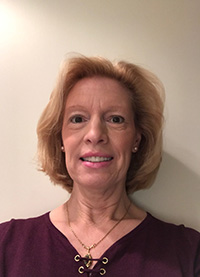
Donna Callahan, RN, MSN
Certified School Nurse, Williamsport Area School District
What encouraged you to want to become a school nurse?
After over 10 years working in primarily critical care settings, I was looking for a change to a different clinical setting. Also, being brutally honest, nursing in hospital settings is not conducive to parenting a young child. As a parent, I needed to practice in a setting where my hours were more predictable and amenable to parenting and using child care. In 1998, I pursued school nurse certification and, shortly thereafter, became employed full time in the Williamsport Area School District. School nursing appealed to me as a new challenge with the school age population. In the school setting, the nurse is the only health care professional in the building. I was comfortable practicing independently since my critical care skills gave me confidence to handle emergencies as needed. I soon learned that school nurses have an important role in teaching parents — and also the adolescent school population – how to appropriately access health care for preventive and emergent needs.
What do you plan to do with your award?
We would like to bring in a well-known speaker for a professional development program and/or parent presentation. Alternatively, the funds would be used for nursing professional development, such as attending the National Association of School Nurses annual summer conference.
What is the most common misperception about being a school nurse?
Most people are not aware of the large scope of practice and responsibility that school nurses have. School nurses must have excellent critical thinking skills in order to problem solve and make evidence-based practice decisions. Also, most people are not aware of the extra educational requirements needed to become a certified school nurse in Pennsylvania.

Meri Beth Elder
Certified School Nurse, Central Westmoreland Career and Technology Center
Recipient Q&A not available at time of publication.

Lydia Catherine Gordon, RN, BSN
Certified School Nurse, Mason County Schools
What encouraged you to want to become a school nurse?
Years ago when I was a parent volunteer at my children’s elementary school, I casually said to myself, “I think I would like to be a school nurse.” Well, several years later, Samantha Knapp, a Mason County school nurse, recommended me to Diana Riddle, director of the Mason County Health Department and supervisor of the Mason County school nurses, for a part-time position of help with diabetic insulin coverage. I loved the job and went back to college and enrolled in the RN to BSN program at Marshall University Mid-Ohio Valley Center in Point Pleasant.
What do you plan to do with your award?
I plan to attend the 2018 National Association of School Nurses Conference in Baltimore, Maryland.
What is the most common misperception about being a school nurse?
That all school nurses do is give out ice packs and apply Band-Aids.
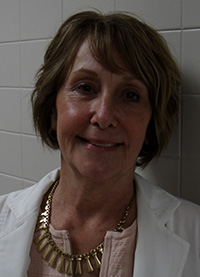
Marie Ripepi, RN, BSN
Certified School Nurse, Charleroi Area School District
What encouraged you to want to become a school nurse?
I wanted to become a school nurse, because I am a very social person and I enjoy working with and helping people. In school nursing, we deal with actual health concerns and potential health concerns on a daily basis. The goal is to keep my students, faculty and staff healthy, safe and ready to learn or teach.
What do you plan to do with your award?
I plan on purchasing new audiology and vision equipment to conduct school screenings.
What is the most common misperception about being a school nurse?
Many people think that all a school nurse does is apply Band-Aids and wait for students to come to their office.

Krista Wright, RN, BSN
Certified School Nurse, Forest Area School District
What encouraged you to want to become a school nurse?
I love taking care of people, and I also love children, so being a school nurse is the perfect job for me.
What do you plan to do with your award?
My award will be donated back to the school so the students in Forest Area School District can benefit from new health screening equipment.
What is the most common misperception about being a school nurse?
School nurses do not sit and wait to put Band-Aids on knees and elbows. School nurses have become an integral part of the educational process.
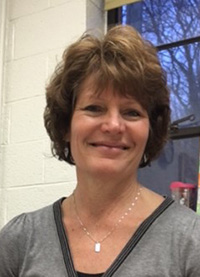
Sarah Gottlieb, RN, BSN
Certified School Nurse, Kanawha County Schools
What encouraged you to want to become a school nurse?
I have a good friend who is also a school nurse. She would tell me about the variety of activities related to the profession of school nursing and the rewards of helping children with their health conditions at school. I was intrigued and applied for the next school nurse opening.
What do you plan to do with your award?
I’d like to purchase a toddler slide for our child care’s playground. I’d also like to establish a diaper pantry for our low-income parenting students.
What is the most common misperception about being a school nurse?
I think the most common misperception is that we mainly perform minor first aid tasks like putting Band-Aids on scraped knees. We do this, but school nurses address the “whole child” and must know about a wide variety of medical and psychological conditions. We prepare our school staffs to address medical emergencies. We need to be flexible (i.e., checking a student’s blood sugar in the middle of Dollywood). We teach classes about everything from handwashing to drug awareness. We develop a relationship with our students and families. We guide and suggest health care access while assisting with insurance or transportation issues. It is a diverse, often stressful, but also highly rewarding job.
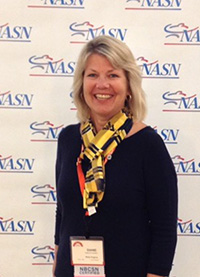
Diane R. Godwin, RN, BSN
Certified School Nurse, Upshur County Schools
What encouraged you to want to become a school nurse?
When I first went to nursing school many years ago, I thought about becoming a school nurse. Well 25 years later, I went back to school and completed my school nursing certification. Three years later, I became nationally board certified in school nursing. It has been a wonderful, challenging and rewarding experience for me.
What do you plan to do with your award?
I am very humbled and honored to have received the Spirit of the Year Award. I plan to continue learning and embracing opportunities for professional development, which will assist me in my knowledge of chronic health needs and health and wellness issues that students and staff face today. I would also like to give back to the schools I serve, whether it is with educational resources or health supplies.
What is the most common misperception about being a school nurse?
School nurses do much more than put on Band-Aids. School nurses are a vital part of a child’s educational experience. I believe healthy learners are better students. A school nurse is required to triage, critically think and coordinate many services for students, which enables them to stay in school and receive a quality education. There are so many chronic health needs that students have today, and it can be challenging to meet them on a daily basis. School nurses provide educational programs for students and staff, manage acute health issues, develop plans of care for high acuity students and maintain records to meet state requirements. Each day is different, and I feel it is a privilege to educate students about healthy choices. My hope is that they will continue these healthy patterns through their life and thus meet their educational and future goals.
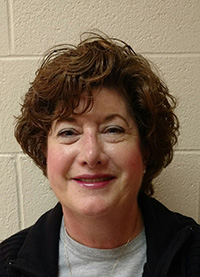
Mary F. Gronkiewicz, RN, BSN
Certified School Nurse, Saint Patrick School
What encouraged you to want to become a school nurse?
The position became available when our daughter entered Kindergarten, and I felt it was a great way to stay active in nursing, but also be available at home with our children.
What do you plan to do with your award?
My plan is to use the award to take a CE course and buy equipment for the Health Room. I’m looking into a trauma bag.
What is the most common misperception about being a school nurse?
That we are here just to clean and bandage scrapes and cuts.
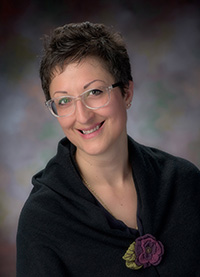
Susan Geary, RN, BSN
Certified School Nurse, Somerset Area School District
What encouraged you to want to become a school nurse?
I began working in our district area as a substitute nurse and quickly fell in love with the job. The atmosphere in our building is very positive and our teachers and staff truly care about our students. Being able to watch them grow and graduate is a privilege. I also strongly believe that healthy students means a healthy community and schools can play an important role in the health of both.
What do you plan to do with your award?
Donate back to the school to be used for student wellness programs.
What is the most common misperception about being a school nurse?
People often feel that school nurses just hand out bandages and take temperatures. This is only a small part of what we do. However, every day has new challenges and school nurses are continually learning and adapting to meet the complex needs of our student population, as we help manage chronic conditions and promote healthy behaviors.
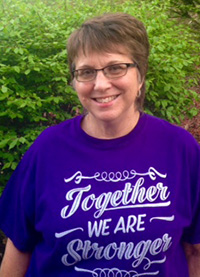
Yvonne (Susie) Povick, RN, BSN
Certified School Nurse, Kanawha County Schools
What encouraged you to want to become a school nurse?
I’ve been a nurse for 41 years and worked in the hospital setting until five years ago. I was ready for a change. I chose school nursing because of my pediatric experience and the opportunity to work with students and families for better health outcomes.
What do you plan to do with your award?
It will go back to the school to replace equipment lost in the flood and possibly an automated external defibrillator (AED).
What is the most common misperception about being a school nurse?
The most common misperception is that the school nurse’s role is to administer Band-Aids and take temperatures, when in reality it is so much more. We are often the only health professional that these students see on a regular basis.
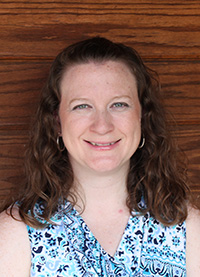
Allison St. Clair, RN, MSN
Certified School Nurse, Monroe County Schools
What encouraged you to want to become a school nurse?
For 16 years, I have loved being a nurse. Two aspects of nursing that have always been my passion are advocating for vulnerable populations and teaching others. During my career, I had the opportunity to care for patients with all types of health problems and for all ages ranging from birth to 100 plus years. At the same time, I have been privileged to teach student nurses, newly practicing nurses, patients, families and community groups. It was after my tenth year as a registered nurse that an insightful former co-worker suggested school nursing as a career option. Then, taking a deeper look into what a school nurse is, I could see that this was the perfect situation for my love for educating others about health, while providing direct care to a vulnerable population — children.
What do you plan to do with your award?
I am blessed to be working with children in my home community, and I’m able to receive this award because of my efforts to improve their health. Therefore, I plan to use the reward to purchase supplies and educational materials to continue educating and providing for these students.
What is the most common misperception about being a school nurse?
Many people believe school nurses simply put Band-Aids on scrapes and check heads for lice when in fact what the school nurse does is work continuously to advocate and care for the health and wellbeing of the whole child. Students are attending school with serious chronic conditions such as type I (insulin-dependent) diabetes, cancer, traumatic brain injuries, cystic fibrosis, asthma, bleeding disorders, food allergies, catheters, tracheostomies, etc. School nurses work tirelessly to plan for and provide care for these children so that they may enjoy the same quality education as students without these diagnoses. The school nurse administers daily medications by mouth, injection and/or gastrostomy tube; assists with tracheostomy care and toileting; manages medical emergencies; administers first aid; reports abuse and neglect; and assesses a variety of acute illness symptoms displayed by students and staff. The school nurse also educates students, parents, coaches, teachers and administrators about student chronic health needs as well as normal growth and development, proper wellness, and safety practices.
Furthermore, the school nurse works as a liaison between medical providers and the school in order to ensure student needs are met amidst an ever-growing entanglement of complicated regulations. At the same time the school nurse must keep surveillance on communicable diseases and their controls and maintain stringent monitoring of health screenings for all students including immunizations; vision and dental health; and height, weight and body mass index evaluation. Simultaneously, the school nurse cares for the emotional and mental needs of many children on a regular basis. A strong nursing background is essential for a school nurse to be successful. This is a challenging career and rather than being thought of as a Band-Aid station, a better description of this autonomous nursing job would include the words advocate, case manager, educator, evaluator, health care provider, counselor, and comforter. School nurses would agree that anyone willing to spend some time with him/her on the job would be astonished at what is actually taking place.

